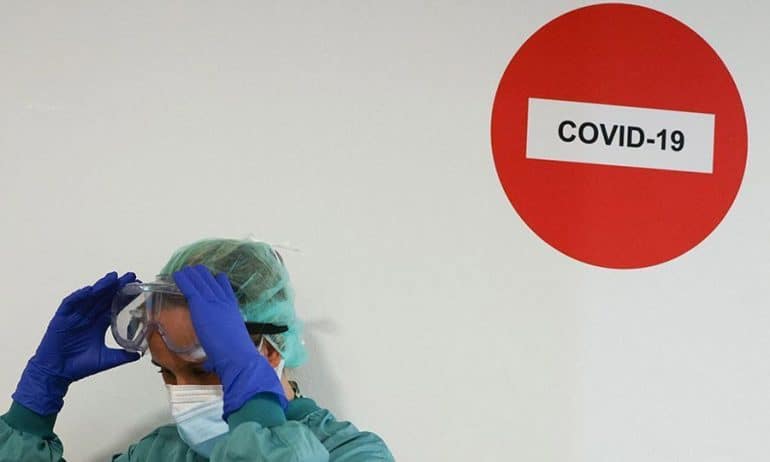A new study, which is being prepared by the Faculty of Positive Sciences of the European University of Cyprus in collaboration with the Karolinska Institutet, Stockholm, changes the data so far regarding the effects of the post-COVID syndrome, as it shows that patients with this particular syndrome they respond as well to exercise as their healthy peers, with no worsening of their symptoms or increased levels of inflammation after exercise.
According to an announcement, the research is led by the Anatomy/Physiology Lecturer of the Sports Science and Physical Education program of the Faculty of Applied Sciences of the European University of Cyprus, Dr. Andrea Tryphonos, and the first findings of this were recently published in the authoritative scientific journal JAMA Network Open.
As noted, patients with post-COVID syndrome often experience symptoms such as extreme fatigue, shortness of breath, and muscle weakness, which may persist for several months after infection with the coronavirus and are not explained by another illness.
The aforementioned symptoms seem to worsen with exercise, which has led major agencies, including the World Health Organization, to talk about avoiding exercise in post-COVID patients.
However, in the long term, inactivity increases the risk of cardiovascular and other diseases.
This new study, the announcement states, "changes the existing data, as it shows that patients with post-COVID syndrome respond as well to exercise as their healthy peers, with no worsening of their symptoms or an increase in inflammation levels after excercise".
These findings suggest the need to revise the strict recommendations to avoid exercise in post-COVID patients.
The researchers support the gradual integration of exercise into the rehabilitation of these patients, as this is given to reduce the risk of developing other diseases associated with hypomobility.
In addition, the participants underwent a variety of medical tests, including blood tests, an ultrasound of the heart, spirometry for lung function, muscle strength tests, neurophysiological tests, and muscle biopsies.
Early analyzes show that post-COVID patients maintain relatively good cardiac and respiratory function but have skeletal muscle problems (62% developed myopathies) compared to their healthy peers.
The research is ongoing and the next goal of the researchers is to study the muscle biopsies in detail in order to investigate the possible mechanisms behind these myopathies.
Finally, patients are expected to undergo a review after one year in order to assess the progress of their rehabilitation in terms of the myopathies recorded.
The research was funded by the Center for Innovative Medicine 2022-24, Tornspiran Foundation, Magnus Bergvalls Foundation, Lars Hierta Minne Foundation, Åke Wiberg Foundation.
Dr. Andrea Tryfonos will present the study's findings at the American College of Sports Medicine's annual conference in Boston in May 2024.
Source: KYPE
